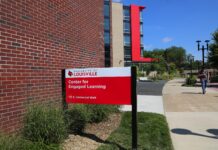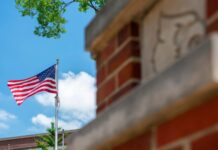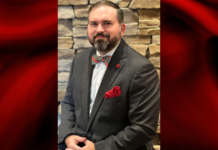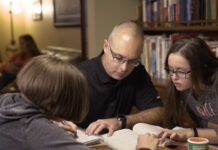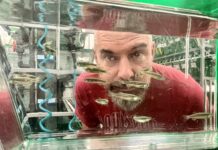LOUISVILLE, Ky. – The University of Louisville today moved to rename the Department of Surgery after its former long-time chairman Hiram Polk, M.D. The new name is the Hiram C. Polk Jr., M.D., Department of Surgery.
“Dr. Polk’s leadership was instrumental in our Department of Surgery’s growth in clinical care, teaching and research,” said Dr. James Ramsey, president of the University of Louisville. “He helped to create the foundation that has made people seek out our department for the surgical clinical care, education and training it provides.”
As part of the renaming, the university has received more than $5 million from some 300 people throughout the nation to support the clinical and research needs of the department.
Dr. Charlie Shields, a 1969 UofL School of Medicine graduate who performed his residency at UofL, and the Oxley Foundation each provided $1 million to the endowment. Drs. Jim and Diane Payne donated $500,000. Dr. Jim Payne was a plastic surgery resident at UofL.
“The generosity of our alumni, community members and other friends is enormous,” Ramsey said. “They have shown yet again how much they value our university and the people who make it such a great place.”
Polk served as the Ben A. Reid Sr., Professor and Chairman of Surgery at the University of Louisville from 1971 to 2005 when he was named the Ben A. Reid Sr., M.D., Emeritus Professor of Surgery. Polk became not only the longest serving chair of a surgery department in the country but also one of the world’s best-known and respected surgeons. During his 34-year tenure, the department saw the development of a prominent trauma center as well as advances in control of surgical infection and was the site of the first self-contained mechanical heart and hand transplants. The department’s resident physicians, fellows and former faculty hold major positions of organizational and institutional leadership on five continents.
A native of Jackson, Miss., and alumnus of Millsaps College and the Harvard Medical School, Polk trained in surgery at Washington University in St. Louis. He was a research fellow at the Lister Institute of Preventive Medicine in London while at the University of Miami and at the Institut Pasteur in Paris.
In 1971, he was recruited to the University of Louisville as Chairman of Surgery and oversaw the development of the department into a well-respected center for research and surgical education. His further commitment to medical student education was defined by more than two dozen Golden Apple Teaching Awards to different members of the surgical faculty during that period.
More than 230 general surgeons trained with him at UofL and as many other specialists in all surgical fields: literally, multiple generations of physicians.
Polk constantly studied and emphasized the causes, prevention and treatment of many diseases requiring surgical attention, for which he was honored by presidencies or chairmanships of more than a dozen national and international surgical organizations.
Polk’s most significant contribution to medicine is his landmark research into the use of perioperative antibiotics. Additionally, Polk helped develop some protocols for malignant melanoma treatment that are currently in use worldwide.
In 2008, Polk succeeded Dr. Michael DeBakey as chair of the Board of Governors of the Foundation for Biomedical Research. In 2011, he was named an Honorary Fellow of the Royal College of Surgeons of England, standing alongside his prior election to the world’s oldest surgical College in Edinburgh, Scotland (founded 1505).









